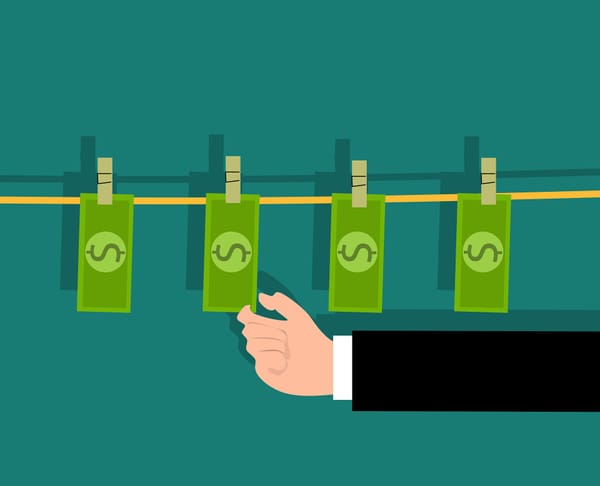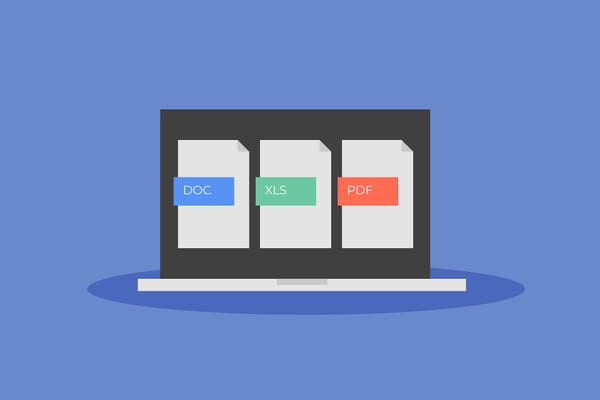Protect Your Business Series: How to Secure Your Facebook Business Page From Hackers

Facebook still reigns supreme with over 3 billion active users monthly. It remains the most used social network globally and the top spot for consumer interaction with brands and businesses.
Did you know?
- 2 out of 3 Facebook users visit a local business Page at least once a week.
- 66% are likely to share their thoughts, experiences, and opinions on their purchases on Facebook.
- 58% of people have browsed a brand's website to get more information after seeing a product or service advertised in a Facebook Story.
But being present as a business on Facebook is about more than getting new clients or talking to them. Business owners also have to anticipate and eliminate fakes, brand abuse, and impersonation – in other words, protect their business from fraudsters who threaten their revenue, damage their brand reputation, or mislead their customers. Over 3 billion pieces of spam content and 2.6 billion fake accounts were removed from the platform by Facebook in 2023.
How Your Business Reputation Can Be Ruined on Facebook
Maintaining a positive reputation on Facebook requires work. On the one hand, it involves posting relevant content, being consistent and honest, managing customer feedback, and answering comments. On the other hand, it's about guarding your business page against online threats. Hackers, scammers, and impersonators are constantly looking for ways to take advantage of weak security. Once they get in, they can disrupt your business and seriously damage your reputation.
Here are a few possible scenarios you should be aware of (not afraid, because there are also ways to prevent them):
Scammers Taking Over Your Account
If your Facebook account is hacked due to weak security measures—such as using simple passwords or failing to activate two-factor authentication (2FA)—scammers can take control. Once inside, they might post harmful or inappropriate content that can shock or offend your followers. They can also send phishing messages to your customers, tricking them into sharing sensitive information or money.
Impact on your reputation: Needless to say, customers who see spam or inappropriate content from your page lose trust in your business. They could report your page or warn others to avoid your company, causing serious damage to your reputation.
Impersonators Pretending to Be Your Business
Cybercriminals may create fake accounts pretending to be your business. These accounts can mislead your customers, post harmful content, or scam them by asking for money, donations, or personal information under your name.
Impact on your reputation: If these impersonators trick your customers, they may blame your business for the scam. Even though the fake account isn't yours, the damage to your reputation could be long-lasting when customers feel betrayed.
Hackers Locking You Out of Your Account
One of the worst scenarios is when hackers gain access to your Facebook business account and lock you out. This is often done by changing your login details or even holding your account ransom, demanding money in exchange for access. During this time, you'll lose control of your page, and hackers could post anything they want.
Impact on your reputation: Being locked out means you can't communicate with your customers, post updates, or remove harmful content. If the hackers post offensive or false information, it can lead to public backlash, angry customers, and even media attention.
Data Breaches and Privacy Violations
Hackers who gain access to your Facebook account may also target your business's sensitive data, including customer details. They could steal private messages, contact information, or even financial details that customers have shared with you.
Impact on your reputation: Customers expect you to protect their personal information, and if that data gets into the wrong hands, it can cause panic and anger. A data breach can lead to lost customers, bad reviews, and even legal consequences.
How to Prevent Brand Reputation Damages on Facebook
1. Secure your Facebook account with a strong password and two-factor authentication.
Use a strong password that's hard to guess—avoid options like "password123."
Avoid using your name, phone number, email address, or common words, reusing your Facebook password on other services online, or sharing it with others.
Then, turn on two-factor authentication (2FA) both for yourself and any other members of your business page. We also encourage you to sign up to get alerts when someone attempts to log in from a device Facebook doesn't recognize. It's always better to set up multiple methods, including saving your recovery codes. This way, you can still access your business portfolio, even if you lose one of the recovery methods.
2. Remove specific categories of users:
- Inactive users. Over time, you might have added others to help you manage your page. But are all of them still working with you? Ensure only trusted people can access your business page by regularly reviewing and updating who has admin or editor roles. Bad actors often target inactive accounts to gain access to a business portfolio. Remove people who haven't logged into the portfolio within the past 90 days, especially those with full control of the portfolio.
- Users without two-factor authentication. People who don't have two-factor authentication set up pose a security risk. Remove them from the portfolio until they have set it up using their Facebook account.
- Users with public email domains. Bad actors often use public email domains to create email addresses anyone can get in order to gain access to a business portfolio. Remove users whose email addresses aren't related to your business.
3. Close or remove inactive ad accounts
Hackers are more likely to target ad accounts that haven't run ads within the last year. Close or remove ad accounts you no longer need. Note: Ad accounts can't be deleted from the portfolio.
4. Make sure at least 2 people have full control of the business portfolio
It's recommended but not required that 2 or 3 active people have full control of a business portfolio. This lets you take advantage of additional security protections, such as approving requests to share credit lines or approving requests to change the access of someone with full control of the portfolio.
Having at least two admins ensures someone has top-level access to the portfolio in the event that one of your accounts or business assets shows suspicious activity. In case you lose access to your Page, a trusted person can help maintain the Page and assist you in regaining access.
5. Monitor business portfolio activity
Review your business history, a file of important events that occurred in your portfolio, to look for any unauthorized activity, such as changes to portfolio details, business assets and people. You can download your business history from the People tab or Business Infotab in Meta Business Suite's Settings. If you notice suspicious or unauthorized activity, contact the Facebook support team.
6. Don't accept friend requests from people you don't know
Scammers may create fake accounts in an attempt to friend and manipulate people. Accepting their friend could result in spam being posted on your timeline and shared with your friends. Scammers may also tag you in posts and send malicious messages to you and your contacts, so be careful to only accept friend requests from people you know and trust. Similarly, don't grant Business Manager permission to Pages you don't know or trust.
Related: Malicious Tagging, a Growing Facebook Scam. What It Is and How to Stay Safe
7. Watch Out for Scams and Fake Profiles
Be cautious when clicking on links in Facebook posts or private messages, especially if they are from people you don't know or trust. Also, be cautious if the link is from a friend or a company you know, but appears suspicious or is requesting you to open files, install apps, or browser extensions.
You can always confirm whether an email claiming to be from Facebook is authentic by reviewing recent emails we've sent in the Security and Login Settings here. If you see a post or message that tries to trick you into sharing personal information, report it.
8. Apply for Brand Rights Protection
Brand Rights Protection is a tool that enables brands to safeguard their intellectual property across Meta technologies. It allows brands to identify and report content for counterfeit, trademark, and copyright infringement, as well as impersonation.
To apply for Brand Rights Protection:
- Go to Brand Rights Protection in Meta Business Suite.
- Click Apply for Brand Rights Protection.
- Fill out the form with the requested information. Note that some fields are marked as optional.
- When you're done, enter your electronic signature and click Send.
- After you submit your application, Facebook will review it and get back to you as soon as they reach a decision.
- If you've been approved, they'll send you an email with the next steps.
Related: 8 Ways to Protect Your Very Small Business Reputation Online
9. Monitor mentions and digital identity of your business outside of your page
Keep track of what people are saying about your business on Facebook, even outside your business page. You can use Facebook's search or other tools to see if anyone is mentioning your business and stay on top of your business's digital identity.
One tool that's really helpful for protecting your business reputation and digital identity is Business Assets Exposure, which comes with Bitdefender Ultimate Small Business Security.
Business Assets Exposure keeps an eye on your important business info like your email, credit cards, and social media accounts. If any of this information gets caught up in a data breach, you'll get a notification. Once you've set it up, you can check if you, your employees, or your business have been part of any data leaks. You'll learn about the breach, the service it happened on, and what kind of information was exposed (like your email or username). Hackers look for this information to try to take control of your social media accounts.
Another useful tool included in Bitdefender Ultimate Small Business Security is Scam Copilot. It helps you identify scams, fake profiles, or suspicious links that could jeopardize you or your business on any platform.
Find out more about the plans and the comprehensive protection offered by Bitdefender Ultimate Small Business Security here.
FAQs
How can I keep my Facebook business page secure?
One of the most effective solutions is Bitdefender Ultimate Small Business Security, which offers advanced protection against online threats, including phishing and scams. It also helps keep your business accounts secure by monitoring them and alerting you in case of suspicious activity. You should also activate Facebook's Security Checkup feature, which guides you through enabling two-factor authentication (2FA), reviewing recent logins, and securing your password. Tools like Facebook Page Roles allow you to control who has access to your page, reducing the risk of unauthorized activity.
What should I do if I suspect my Facebook business page was compromised?
First, try to change your password immediately. If you're locked out, use Facebook's Account Recovery tools to regain access. Enable two-factor authentication (2FA) if you haven't already.
Report any suspicious activity to Facebook and visit facebook.com/hacked to get help.
Warn your followers about the incident, especially if harmful content was posted in your name. Finally, check who has admin rights to your page and remove any suspicious accounts.
How can I avoid my business being impersonated on Facebook?
To prevent impersonation, regularly monitor your business name and look for fake accounts pretending to be your business with Bitdefender Ultimate Small Business Security. If you find any, report them immediately to Facebook.
tags
Author
Cristina is a freelance writer and a mother of two living in Denmark. Her 15 years experience in communication includes developing content for tv, online, mobile apps, and a chatbot.
View all postsRight now Top posts
How to Protect Your WhatsApp from Hackers and Scammers – 8 Key Settings and Best Practices
April 03, 2025
Outpacing Cyberthreats: Bitdefender Together with Scuderia Ferrari HP in 2025
March 12, 2025
Streamjacking Scams On YouTube Leverage CS2 Pro Player Championships to Defraud Gamers
February 20, 2025
How to Identify and Protect Yourself from Gaming Laptop Scams
February 11, 2025
FOLLOW US ON SOCIAL MEDIA
You might also like
Bookmarks







